We protect forests as our source of ecology, maintain our climate and protect the Earth we call home. Among these forests, the Amazon is the earth’s vital ecosystem and carbon sink.
Greenpeace has initiated a global preservation effort for the Amazon rainforests for 27 years, and our Hong Kong team has been stepping up with a local angle since 2019, so more community members can join the cause. Now, we’ll start with the recent development of the fires in Amazon, then we’ll explore why and how Hongkongers can help in “Protect the Amazon”. Albeit far, this green gem’s fate actually has something to do with our eating habits.
Amazon is up in flames, the destruction as of September
Brazil is in flames. Amazon, the world’s largest tropical rainforest, has experienced two consecutive historic fires in two years. While more than 1 million hectares of forest were burnt in Amazon in 2019, the fire in 2020 is probably the worst in 10 years. But things are getting worse as the fires are returning and spreading to more biodiverse areas, which 23% of the rainforest is affected so far. (data source: https://lasa.ufrj.br/news/burned-area-pantanal-2020/; based on data as of 27 September. The error range of the report is +/- 20%, which may affect the calculation of the total affected area.
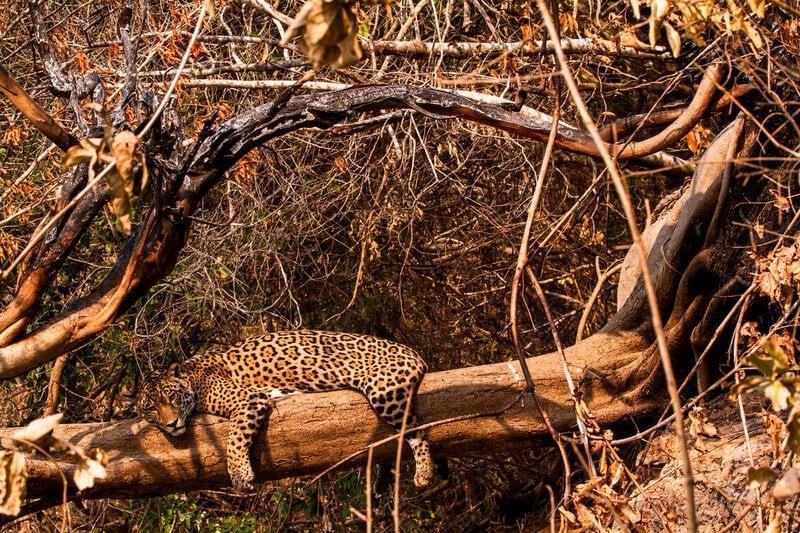
Amazon matters, globally
We’re losing forests the size of a football pitch every two seconds, which agricultural expansion is responsible for 80% of the loss. So companies and governments worldwide must stop trading with those who destroy our forests and make drastic cuts in producing meat and dairy products. Economies should be sustainable and human-focused, after all.
The situation has been deteriorating since Brazilian President Jair Bolsonaro took office in 2019. His government has not only sacrificed Amazon for economic growth but has been hindering efforts in preservation and laying blame on the indigenous community. This inevitable will make our climate crisis a lot worse, with Brazil in ashes and millions of people at stake.
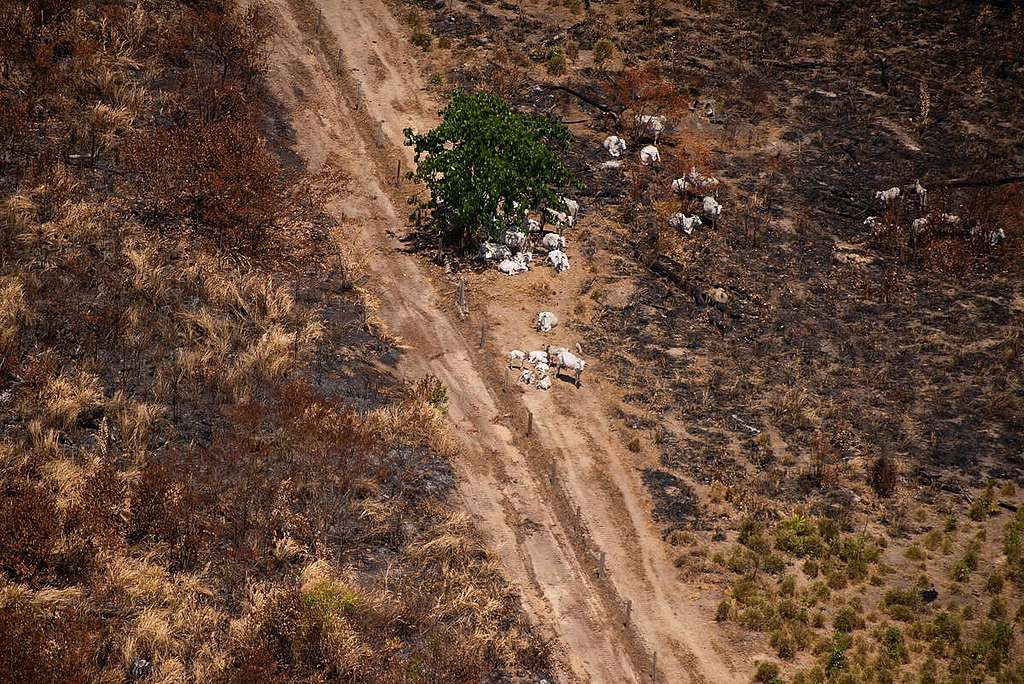
And, here’s the link to Hong Kong
Did you know Brazil’s “deforestation meat” is one of Hong Kong’s primary meat sources? JBS, Marfrig and Minerva, the three key beef suppliers to the city and supplying 60% of the frozen beef and offal imported from Brazil in Hong Kong in 2017, are known for their unethical practices and destruction in Amazon.
Farms have been illegally clearing Amazon forests to raise cattle for these three corporations. While these suppliers disavowed such practice, as they only regulate their direct suppliers, ‘deforestation meat’ continues to persist. As of August 2020, there are still wildfire hotspots in areas where these corporation’s suppliers operate despite official bans.
To save Amazon, we must push for change in Hong Kong. Since mid-August, Greenpeace Hong Kong has reached out to local supermarkets checking on their procurement on Brazilian beef and whether JBS, Manfrig and Minvera are their suppliers. We have been in conversations with the local chains including ParknShop, Wellcome, Kaibo, Dachang, Yata , AEON, CR Vanguardand, City’Super, and Marks & Spencer.
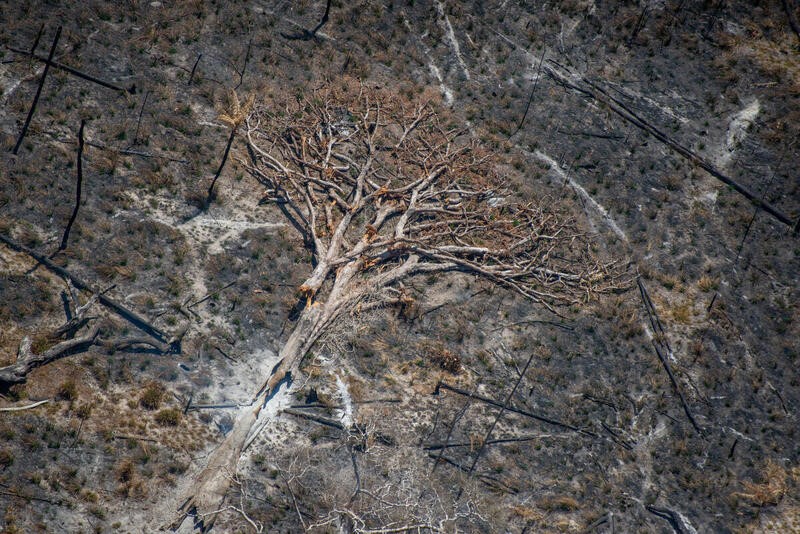
We’ve launched a petition campaign on “Amazon Day” on 5 September to gather community voices to add on our efforts to protect Amazon. We urge local retail chains and international fast-food restaurants to disclose the source of meat and phase out “deforestation meat”.
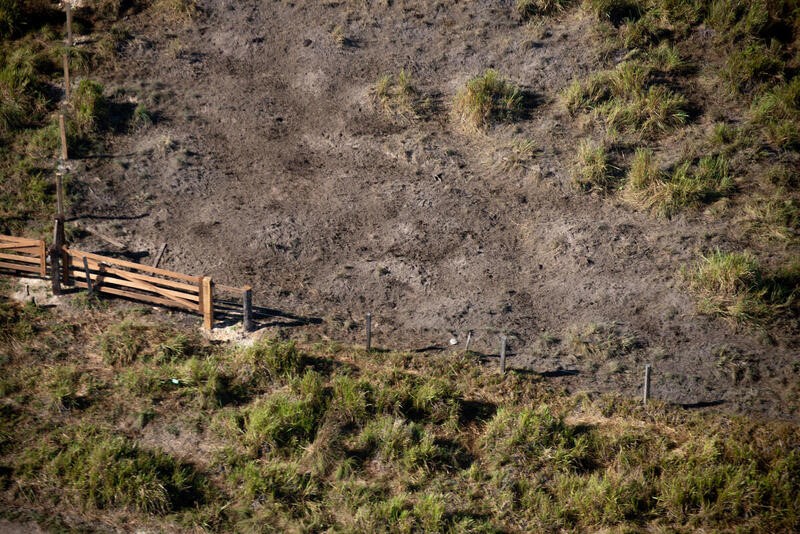
The early impacts of the “deforestation meat” investigation
Our “Say No to deforestation meat” petition under the Protect the Amazon project has already gathered many who love the Earth and care about the climate crisis. Here are some of our early achievements from the recent efforts:
1.Three companies responded initially
Yata: Rarely sell Brazilian beef
City’Super: Not selling Brazilian meat
AEON: Stopped supplying Brazilian meat since 2017
2.Our in-depth investigation by the team gained traction on major local media. South China Morning Post’s headline wrote as “Nearly a third of HK’s beef comes from deforested areas of Amazon rainforest, new Greenpeace study shows“; major Chinese newspaper including
Apple Daily and Oriental Daily News also made coverage on our investigations.
3.PARKnSHOP, one of the supermarket giants in Hong Kong, later also responded: JBS meat products are currently available, but will use other suppliers once the current stock is depleted.
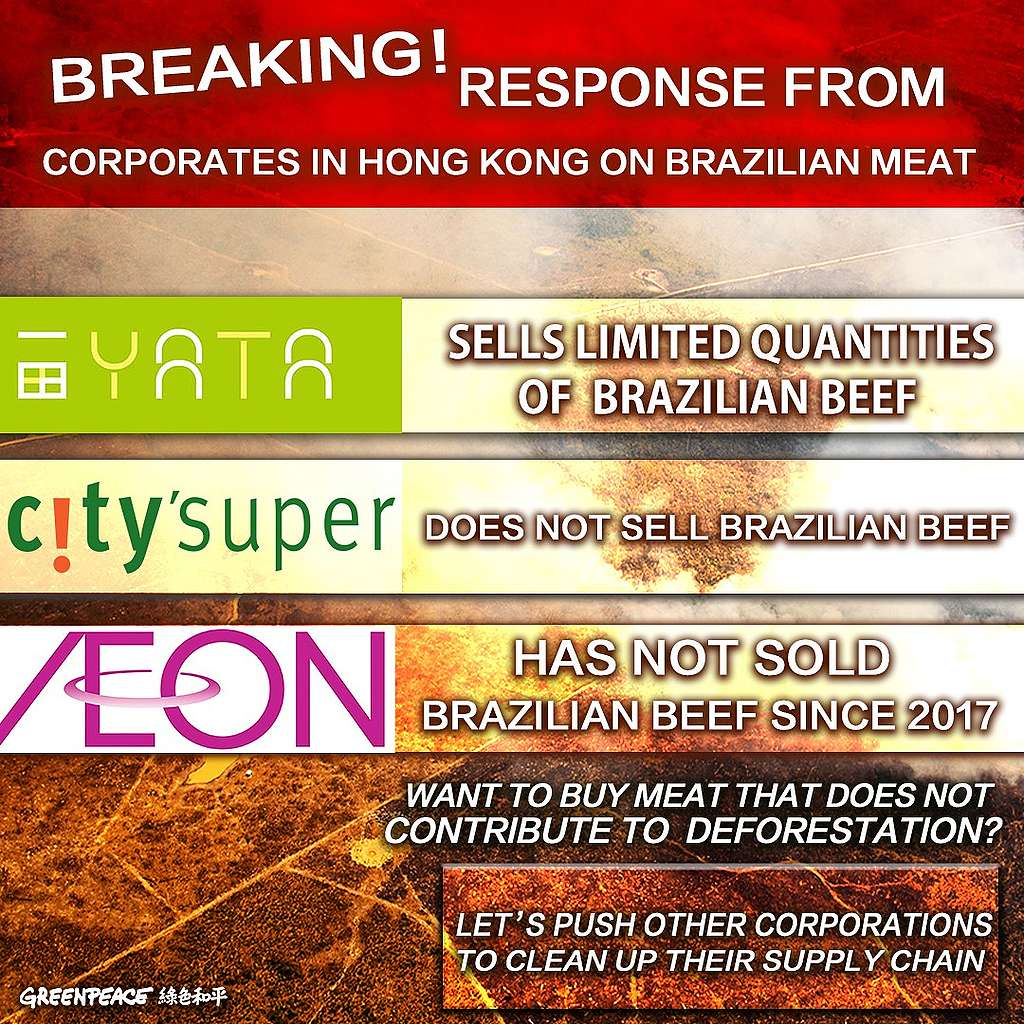
Two ways you can continue to help Protect the Amazon:
- Support Greenpeace in following up with other local supermarkets and follow through PARKnSHOP’s promise;
- Sign our petition to request local corporates to say no to deforestation meat and share the message of protecting Amazon with your friends and family.
